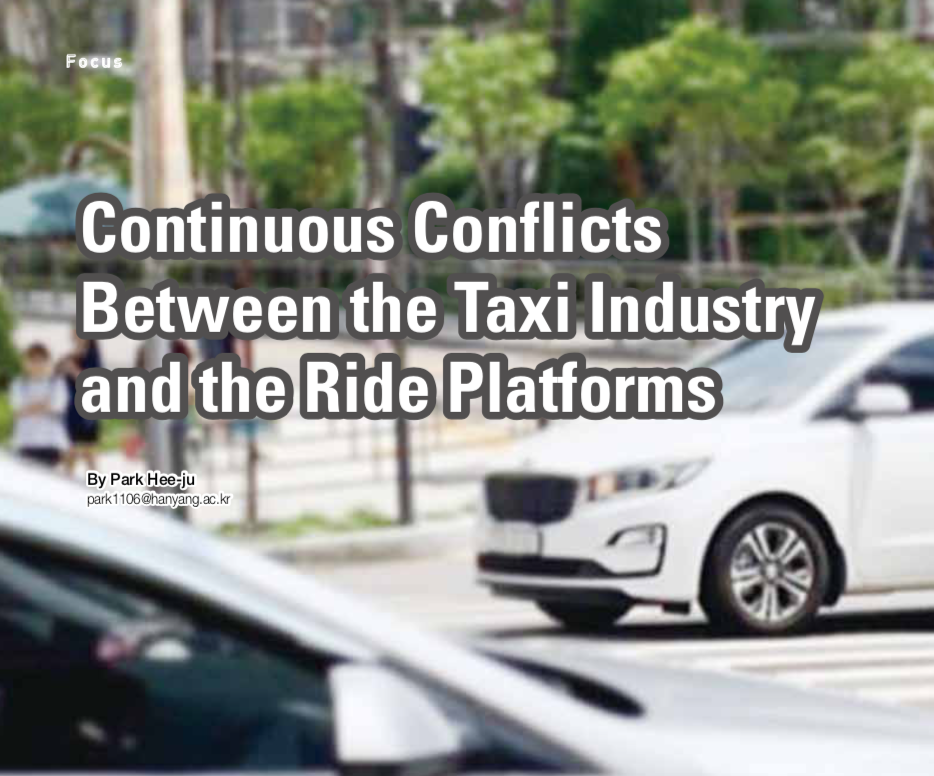
As society develops, the increase in product variety has given more freedom to what customers choose to consume. Recently, shared services such as Mo-bike, Socar and Seoul bike have been trendy items. Among them, the car sharing services have attracted the public’s attention, and vari- ous ride platforms have begun to emerge based on this trend. Uber and Kakao Taxi are the most well-known examples of the newly introduced platforms. However, they initially faced strong opposition from the taxi industry. Taxi drivers have complained about their diminishing revenues. The conflicts between ride platforms and taxi industries are worsening daily. In one extreme case, a taxi driver committed suicide by setting himself on fire in his own taxi. Controversy over ride-sharing between Kakao and the taxi industry seems to be concluding with ride-sharing being allowed during rush hour.
However, the battle between the taxi industry and the mobility industry is shifting to another shared car service, ‘Tada’. While Kakao Mobility worked quickly with the taxi industry after the Land, Infrastructure, and Transport Ministryʼs “Taxi System Reorganization Plan” was introduced, the mobility service of rental cars like ‘Tada’ is still facing strong opposition from taxi organizations. On August 7, 2019, four taxi organizations issued a statement calling for the immediate punishment of illegal taxi businesses using similar-looking rental cars, including ‘Tada’. The taxi industry has complained that ‘Tada’ has been operating illegal taxies, and has broken away from the legislative plan to provide convenient ride services to tourist groups.
Watching the conflict, consumers have criticized the taxi industry’s response. They claim that taxi drivers need to improve their unfriendly manners and safety issues first before criticizing the emergence of other competitors, since it is completely logical that consumers would take advantage of better services when offered. In order to prevent confusion, the government will have to come up with an organized system, instead of an ambiguous sanction on ride-sharing services. Furthermore, the platforming of the mobility industry is causing serious labor problems. For example, unequal contracts with platform owners and long-term labor issues below minimum wage are causing strikes by Uber drivers in New York. Protecting taxi driversʼ means of living and promising customersʼ rights should not be taken lightly when solving these problems.

